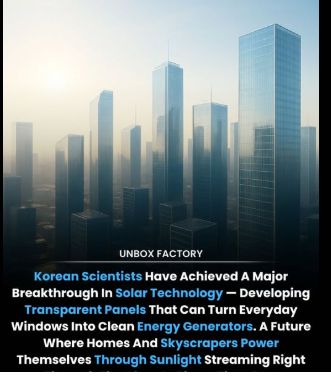The MUSIC Project in Europe: An Orchestral Shift in Bioenergy?
The MUSIC project, funded by the EU’s Horizon2020 program, aims to harmonize and facilitate the widespread adoption of Intermediate Bioenergy Carriers (IBCs) across Europe.
What is The MUSIC project?
The MUSIC project, formally known as “Market Uptake of Sustainable Intermediate Bioenergy Carriers”, aims to facilitate the widespread adoption of Intermediate Bioenergy Carriers (IBCs) across Europe. IBCs are processed biomass materials like pellets, torrefied wood, or biogasoline, designed for easier transportation, storage, and trade compared to raw biomass.
Here’s a breakdown of its key aspects:
Goals:
- Develop feedstock mobilization strategies: Identifying and implementing efficient methods for collecting and processing diverse biomass sources into IBCs across Europe.
- Improve logistics and infrastructure: Establishing efficient transportation and storage networks for IBCs, enabling seamless movement and utilization across borders.
- Create IBC trade centers: Dedicated trading platforms for IBCs are envisioned, facilitating market transparency, standardization, and increased market confidence.
Potential Benefits:
- Enhanced Sustainability: Efficient IBC utilization can reduce greenhouse gas emissions compared to raw biomass transportation and improve land-use efficiency.
- Increased Energy Security: Diversifying the bioenergy feedstock base and improving logistics can strengthen Europe’s energy independence.
- Economic Growth: The project has the potential to create new jobs in the bioenergy sector and stimulate rural development.
- Market Stability: Standardized IBCs and dedicated trading platforms can foster a more stable and transparent bioenergy market.
IBCs are processed biomass materials like pellets, torrefied wood, or biogasoline, designed for easier transportation, storage, and trade compared to raw biomass.
With the European Union striving for ambitious renewable energy targets and facing challenges in traditional biomass utilization, MUSIC’s outlook holds significant promise and potential hurdles.
Let’s delve into the key aspects of the project and explore its future prospects.
Harmonious Melodies: The Project’s Goals
MUSIC focuses on three main objectives:
- Developing feedstock mobilization strategies: The project aims to identify and implement efficient methods for collecting and processing diverse biomass sources into IBCs across Europe.
- Improving logistics and infrastructure: MUSIC seeks to establish efficient transportation and storage networks for IBCs, enabling seamless movement and utilization across borders.
- Creating IBC trade centers: Dedicated trading platforms for IBCs are envisioned, facilitating market transparency, standardization, and increased market confidence.
By achieving these goals, MUSIC aspires to orchestrate a smooth transition towards a more efficient and integrated bioenergy market in Europe.
The MUSIC projects Statistics Data
Global Bioenergy Outlook 2023
The Global Bioenergy Outlook 2023 (GBO-2023) published by the International Energy Agency (IEA) offers a comprehensive report on the current state and future prospects of bioenergy around the world. Here are some key highlights:
Current Status:
- Bioenergy currently accounts for around 6% of global final energy consumption, with traditional biomass use dominating the sector.
- Modern bioenergy, which excludes traditional uses, makes up roughly 2% of global final energy consumption.
- The use of biofuels for transportation fuels remains stagnant, while bioheat and biogas markets are witnessing modest growth.
Future Projections:
- The report presents two future scenarios: the Stated Policies Scenario (STEPS) and the Net Zero Emissions by 2050 (NZE) Scenario.
- In the STEPS scenario, bioenergy consumption remains relatively flat, reaching around 7% of global final energy consumption by 2050.
- In the NZE scenario, bioenergy plays a critical role in achieving net-zero emissions, with its share increasing to 16% of global final energy consumption by 2050.
- This significant increase would require substantial growth in advanced biofuels and sustainable biomass production practices.
Key Findings:
- Bioenergy can contribute significantly to decarbonizing the energy sector, particularly in sectors like transportation and industry where electrification is challenging.
- Sustainable biomass production and advanced biofuel technologies are crucial for unlocking bioenergy’s full potential.
- Policy support and investments are needed to incentivize sustainable bioenergy production and foster market development.
The Energetic Chorus: Potential Benefits
The successful implementation of MUSIC could bring a multitude of benefits:
- Enhanced Sustainability: Efficient IBC utilization can reduce greenhouse gas emissions compared to raw biomass transportation and improve land-use efficiency.
- Increased Energy Security: Diversifying the bioenergy feedstock base and improving logistics can strengthen Europe’s energy independence.
- Economic Growth: The project has the potential to create new jobs in the bioenergy sector and stimulate rural development.
- Market Stability: Standardized IBCs and dedicated trading platforms can foster a more stable and transparent bioenergy market.
Discordant Notes: Challenges and Uncertainties
Despite its promising outlook, MUSIC faces some challenges:
- Feedstock Availability: Ensuring a sustainable and consistent supply of diverse biomass feedstock across Europe requires overcoming logistical and regulatory hurdles.
- Infrastructure Investment: Significant investments are needed to develop and upgrade transportation and storage infrastructure for IBCs.
- Market Acceptance: Gaining widespread market acceptance for new IBCs and trading platforms requires overcoming inertia and building trust among stakeholders.
- Policy Alignment: Ensuring supportive policies and regulations that incentivize IBC use across different EU member states is crucial for success.
The Final Movement: A Composed Conclusion
The MUSIC project’s outlook hinges on its ability to navigate these challenges and harmonize the various actors involved.
If successful, it has the potential to conduct a major shift in Europe’s bioenergy landscape, fostering a more sustainable, secure, and economically viable energy future.
The project’s ultimate success will depend on strong collaboration, innovative solutions, and continued support from policymakers and market players. Only then can the MUSIC project truly live up to its name and create a harmonious symphony of bioenergy across Europe.
https://www.exaputra.com/2024/02/outlook-of-music-project-europe.html
Renewable Energy
Educating for Peace
 What this really means is teaching kids that:
What this really means is teaching kids that:
All human beings, rich or poor, black or white, gay or straight, have equal value.
The people who have had the privilege to see the Earth from space are uniformly shocked, usually moved to tears, to see that all the lines and boundaries that define our geopolitical world do not really exist; they are constructs of the uber-wealthy who profit from division and war.
I would love to see Maria Montessori’s dream come true. Yet, as a realist, living in the United States, I see the enormity of the challenge we face here.
Renewable Energy
Did January 6th Really Happen, or Was it a Hoax, as Trump Wants You to Believe?
 If I had told you ten years ago that one man would rise to power in the United States who would have such a command over the American people that he could make up any lie he wanted to — and it would be broadly recognized as true — would you have believed me?
If I had told you ten years ago that one man would rise to power in the United States who would have such a command over the American people that he could make up any lie he wanted to — and it would be broadly recognized as true — would you have believed me?
Anyone would have bet $100 against a dime that this was impossible. Yet here we are, in a land where Trump can literally rewrite history, just by opening his mouth.
Did January 6th Really Happen, or Was it a Hoax, as Trump Wants You to Believe?
Renewable Energy
Transparent Solar PV
 This is theoretically possible; it transmits visible light and uses other frequencies (ultra-violet and infrared) to knock electrons out of the substrate. But it means higher costs and lower efficiencies. Of zero practical value at this point.
This is theoretically possible; it transmits visible light and uses other frequencies (ultra-violet and infrared) to knock electrons out of the substrate. But it means higher costs and lower efficiencies. Of zero practical value at this point.
-
Climate Change2 years ago
Spanish-language misinformation on renewable energy spreads online, report shows
-
Climate Change3 months ago
Guest post: Why China is still building new coal – and when it might stop
-
Climate Change Videos2 years ago
The toxic gas flares fuelling Nigeria’s climate change – BBC News
-

 Greenhouse Gases1 year ago
Greenhouse Gases1 year ago嘉宾来稿:满足中国增长的用电需求 光伏加储能“比新建煤电更实惠”
-
Greenhouse Gases3 months ago
Guest post: Why China is still building new coal – and when it might stop
-

 Climate Change1 year ago
Climate Change1 year ago嘉宾来稿:满足中国增长的用电需求 光伏加储能“比新建煤电更实惠”
-

 Carbon Footprint2 years ago
Carbon Footprint2 years agoUS SEC’s Climate Disclosure Rules Spur Renewed Interest in Carbon Credits
-
Renewable Energy4 months ago
US Grid Strain, Possible Allete Sale
















